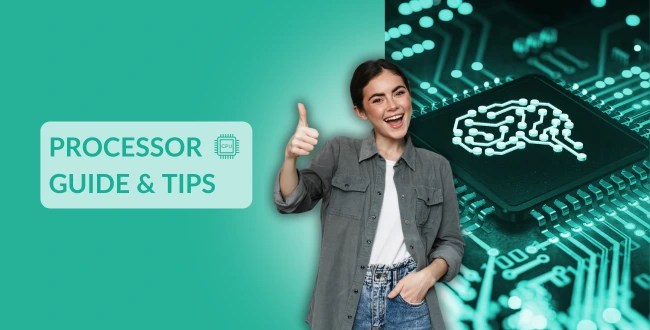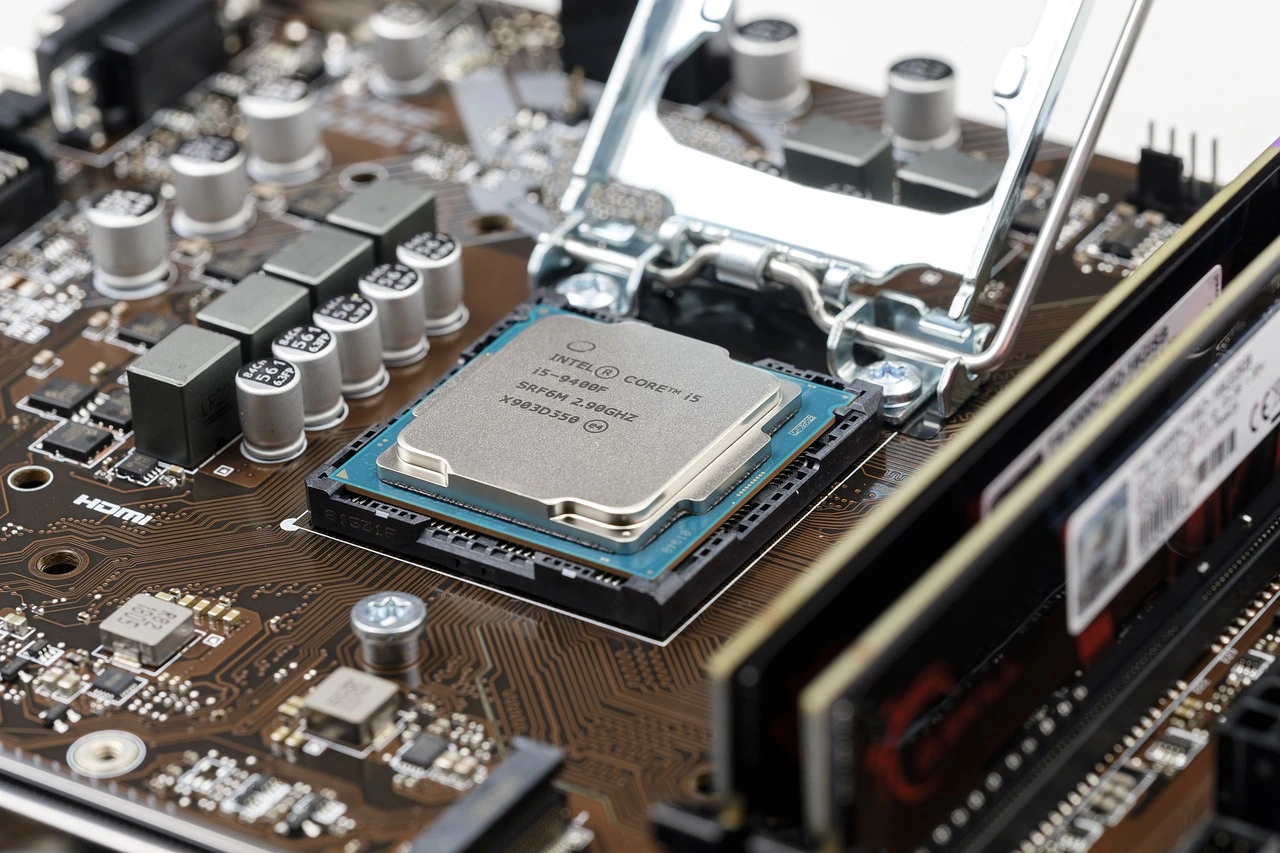04/04/2025

Choosing a laptop processor: Guide and Tips
The processor is the brain of your laptop and largely determines how fast and powerful it operates. Whether you're studying, gaming, or editing videos, the right processor makes all the difference. But with so many options available, choosing the right one can be challenging. In this blog, we explain what a processor does, the different types available, and which one best suits your needs.
Every time you open a program, load a webpage, or save a file, the processor is at work. That’s why it’s essential to choose a processor that matches your laptop’s intended use.

The faster a processor completes these steps, the faster your laptop operates. This speed depends on factors such as clock speed (GHz), the number of cores, and the amount of cache memory.
The processor you need depends on how you use your laptop:

Apple processors are specifically designed for macOS, offering excellent battery life and performance.
Schuivende Tabel
Table of Contents
- What is a processor (CPU)?
- How does this laptop component work?
- Why is a laptop processor so important?
- What different brands and models are available?
- Which processor do I need? The best choice!
- Conclusion
- Frequently Asked Questions
What is a processor (CPU)?
The processor, also known as the CPU (Central Processing Unit), is the brain of your laptop. This component processes all instructions and calculations necessary for your computer to function properly. The more powerful the processor, the faster and smoother your laptop will run.Every time you open a program, load a webpage, or save a file, the processor is at work. That’s why it’s essential to choose a processor that matches your laptop’s intended use.

How does this laptop component work?
A processor performs billions of calculations per second. This happens in three steps:- Fetch: The processor retrieves an instruction from memory.
- Decode: The instruction is deciphered and executed.
- Store: The result is written back to memory.
The faster a processor completes these steps, the faster your laptop operates. This speed depends on factors such as clock speed (GHz), the number of cores, and the amount of cache memory.
Why is a laptop processor so important?
The processor has a significant impact on your laptop’s performance. A slow processor can cause programs to take longer to open and may struggle with demanding tasks.The processor you need depends on how you use your laptop:
- Basic use (internet browsing, emails, word processing) → entry-level model.
- Study or work (multitasking, light photo editing) → mid-range processor.
- Gaming & video editing → high-end processor with multiple cores.
- Professional applications (3D rendering, AI calculations) → the most powerful CPUs.

What different brands and models are available?
When searching for a laptop, you will come across various processor brands and models. The three most well-known are Intel, AMD, and Apple.Intel processors
Intel processors are highly popular and widely used in Windows laptops. The most common models include:- Intel Core i3: Suitable for basic tasks like browsing and Office applications.
- Intel Core i5: Great for multitasking, light gaming, and photo editing.
- Intel Core i7: Ideal for more demanding tasks such as video editing and gaming.
- Intel Core i9: The most powerful option, perfect for professionals and gamers.
AMD processors
AMD is Intel’s biggest competitor and is known for its Ryzen processors, which offer excellent value for money:- AMD Ryzen 3: Good for basic use and studying.
- AMD Ryzen 5: Powerful enough for graphic applications and gaming.
- AMD Ryzen 7: Suitable for heavy tasks like video editing and 3D modeling.
- AMD Ryzen 9: The most powerful option for high-end gaming and professional applications.
Apple processors
Apple has developed its own processors based on ARM technology, known as the M-series chips:- M1 chip: A powerful and energy-efficient chip for most users.
- M1 Pro & M1 Max: Ideal for video editing and intensive workloads.
- M2 & M3 series: Faster and more efficient than the M1 series, perfect for professional users.
Apple processors are specifically designed for macOS, offering excellent battery life and performance.
Which processor do I need? The best choice!
There are many different laptop processors, and the best choice depends on how you use your laptop. Below is an overview of common usage scenarios, along with the recommended processors for each brand.| Usage | Intel | AMD | Apple |
|---|---|---|---|
|
Basic use (browsing, emails, word processing) |
Intel Core i3 | AMD Ryzen | Apple M1 / M2 |
|
Study & Multitasking (working with multiple tabs) |
Intel Core i5 | AMD RYzen 5 | Apple M1 / M2 |
|
Photo editing (Adobe Lightroom, Photoshop) |
Intel Core i5 / I7 | AMD Ryzen 5 / 7 | Apple M2 / M3 |
|
Video editing (Adobe Premiere Pro, DaVinci Resolve) |
Intel Core i7 / i9 | AMD Ryzen 7 / 9 | Apple M2 Pro / M3 Pro |
|
Gaming (modern games on high settings) |
Intel Core i5 / i7 | AMD Ryzen 5 / 7 | Apple M3 |
| 3D modeling, animation & rendering | Intel Core i9 | AMD Ryzen 9 | Apple M2 Max / M3 Max |
| AI, data analysis & professional software | Intel Core i9 | AMD Ryzen 9 | Apple M3 Ultra |
